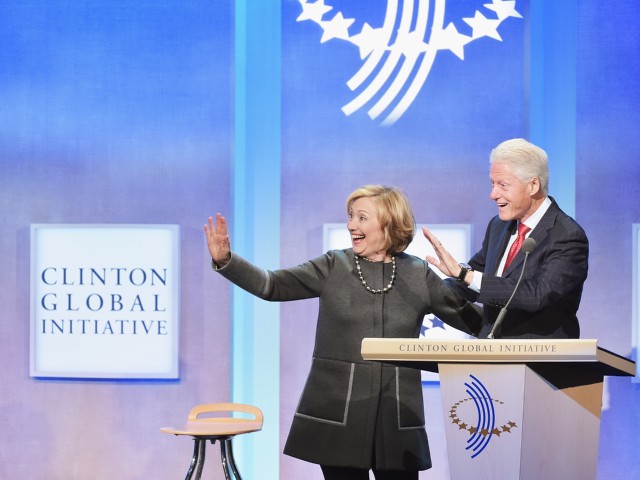The France-based International Agency for Research on Cancer (IARC), a semi-autonomous offshoot of the World Health Organization, is expected to appoint its new director on May 17th for a five-year term. The new appointee will take over a number of challenges from outgoing director, Chris Wild, who has led the agency through a difficult period that has seen the organization backtrack on several of its assessments, and dragged before a U.S. Congressional committee to answer for its “shoddy work” on others.
With Congress threating to pull funding due to a “record of controversy, retractions, and inconsistencies” the agency’s credibility is standing in the balance. What is particularly troubling, however, is that the IARC’s assessments continues to be highly influential, with real and often significant consequences for both businesses and policymakers.
Take for example, Johnson & Johnson, a mega corporation currently facing more than 6,000 lawsuits from women claiming that the company’s widely used Baby Powder caused their ovarian cancer, but only after IARC classified talc as carcinogenic to humans. The lawyers attacking Johnson & Johnson are not only hoping for a big payout (with one woman being awarded a staggering $417 million in damages) but they’re also pushing for talc powder to carry warning labels asserting that the substance is carcinogenic.
This kind of warning label has oversaturated California for years, leading commentators to scoff that in the Golden State, “everything causes cancer.” IARC determining that a chemical might “possibly [be] carcinogenic to humans” is enough to land the substance on California’s infamous Proposition 65 list. The substances in Prop 65’s catalog are slapped with an intimidating warning label reading, “WARNING: This product contains a chemical known to the State of California to cause cancer.” This in turn causes each substance to become fodder for an extensive network of bounty hunters that have sprung up to fleece businesses for not complying with Prop 65’s stringent requirements.
Since IARC’s assessments hold such influence, their scientific rigor should be beyond reproach—and yet nothing is further from the truth. IARC’s determination in 2015 that the popular herbicide glyphosate was a “probable carcinogen” immediately raised eyebrows, particularly because IARC’s conclusion deviated sharply from all other institutions which had evaluated the chemical and found that it was unlikely to cause cancer.
Concerns about IARC’s classification of glyphosate increased dramatically. However, Reuters published two exposés indicating that IARC left out a critical study of their assessment and that the agency had even edited out scientific evidence that disagreed with its desired conclusion.
The glyphosate saga is likely only the tip of the iceberg of IARC’s dubious science, as some of its other assessments have recently come under scrutiny. In February 2018, it became public that the IARC had omitted essential findings in its review of benzene, drastically underestimating the average human exposure to the dangerous chemical. What was more troubling than IARC’s scientific errors in its benzene assessment was the agency’s attitude when Melvyn Kopstein, the chemical engineer who discovered the mistakes, pointed them out. IARC staff admitted that the agency’s evaluation was “limited” and had “tried to cover too much.” They nevertheless stated unequivocally that they had no plans to correct their assessment. Kopstein was left stunned and troubled by the agency’s apathetic response to the serious concerns he had raised to many of the senior IARC officials, including Director Chris Wild.
The passing of the baton to a new director is a valuable opportunity for IARC to revisit its policies and methods, and shake off the cloud of doubt which now overshadows the organization. Unfortunately, some of the candidates reported to be on the short-list have had their own share of controversy.
Chris Portier, for example, has drawn flak for advising the IARC’s glyphosate review panel without disclosing the fact that he was involved with the anti-pesticide Environmental Defense Fund while collecting $160,000 from law firms suing the glyphosate manufacturers. These potential conflicts of interest were highlighted by the Congressional Committee on Science, Space, and Technology in a November 2017 article on Chris Wild, where Portier’s scientific testimony in a court case was described as “shaky” by federal judge Vince Chhabria.
Another rumored candidate for the new IARC director, Joachim Schüz, has headed the group’s section on Environment and Radiation since 2010. He has been accused of drastically underestimating the human health risks presented by mobile phones and systematically suppressing data he disagreed with. Schüz also allegedly accepted funding from major telecommunications companies, raising concerns about a potential conflict of interest.
That Portier and Schüz are supposedly in contention to head IARC is a worrying sign that the organization’s new director won’t usher in a fresh era of credibility and scientific accuracy, but rather will continue the same patterns which have landed the agency in Congress’ crosshairs.












Comments
As a privately owned web site, we reserve the right to edit or remove comments that contain spam, advertising, vulgarity, threats of violence, racism, anti-Semitism, or personal/abusive attacks on other users. The same applies to trolling, the use of multiple aliases, or just generally being a jerk. Enforcement of this policy is at the sole discretion of the site administrators and repeat offenders may be blocked or permanently banned without warning. Guest posting is disabled for security reasons.